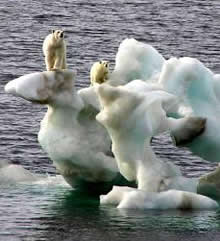Modeling land-use and land-cover change presents new scientific challenges, particularly for integrating biophysical and socioeconomic data and processes, and for capturing heterogeneity in both components. While spatially explicit modeling undoubtedly increases the burdens associated with data compilation, model estimation and analysis, spatial richness provides an obvious means to relate geographical patterns and social diversity, facilitates interdisciplinary collaboration among diverse disciplines, and produces results that are significantly more useful and relevant for decision-making than aggregate analysis. In many countries judicious, robust and geographically varied land use strategies will be required for adaptation to climate change.
LUC has developed methodologies and modeling tools, and compiled detailed ecological and economic databases to analyze global, regional and national food and agricultural polices, against the background of global change. LUC provides science-for-policy insight on key global problems: reduction of hunger and poverty while ensuring environmental sustainability, international agricultural trade reforms and elimination of distorting subsidies, and integration of climate change adaptation and mitigation strategies.
Responsible for this page:
Elisabeth Kawczynski
Last updated:
24 Feb 2011
![]()


 Schlossplatz 1
Schlossplatz 1